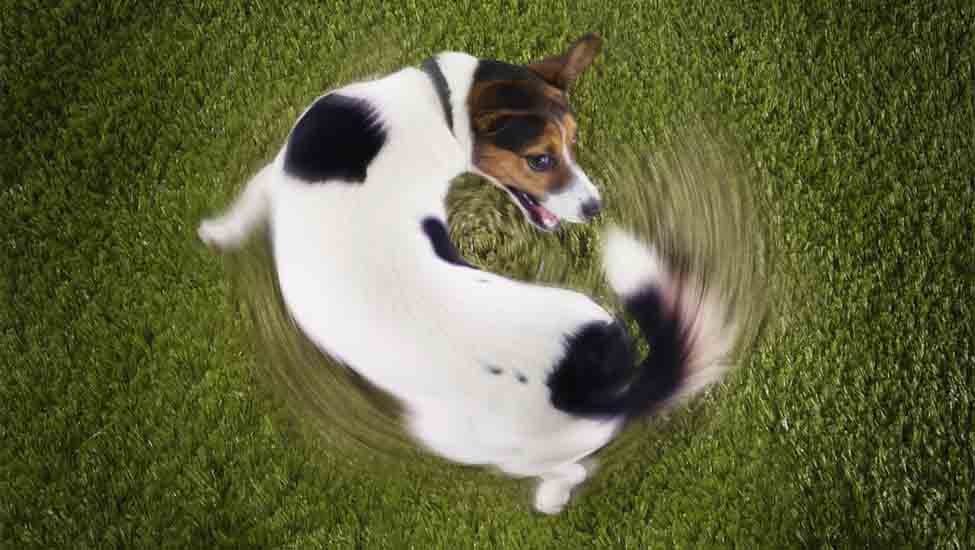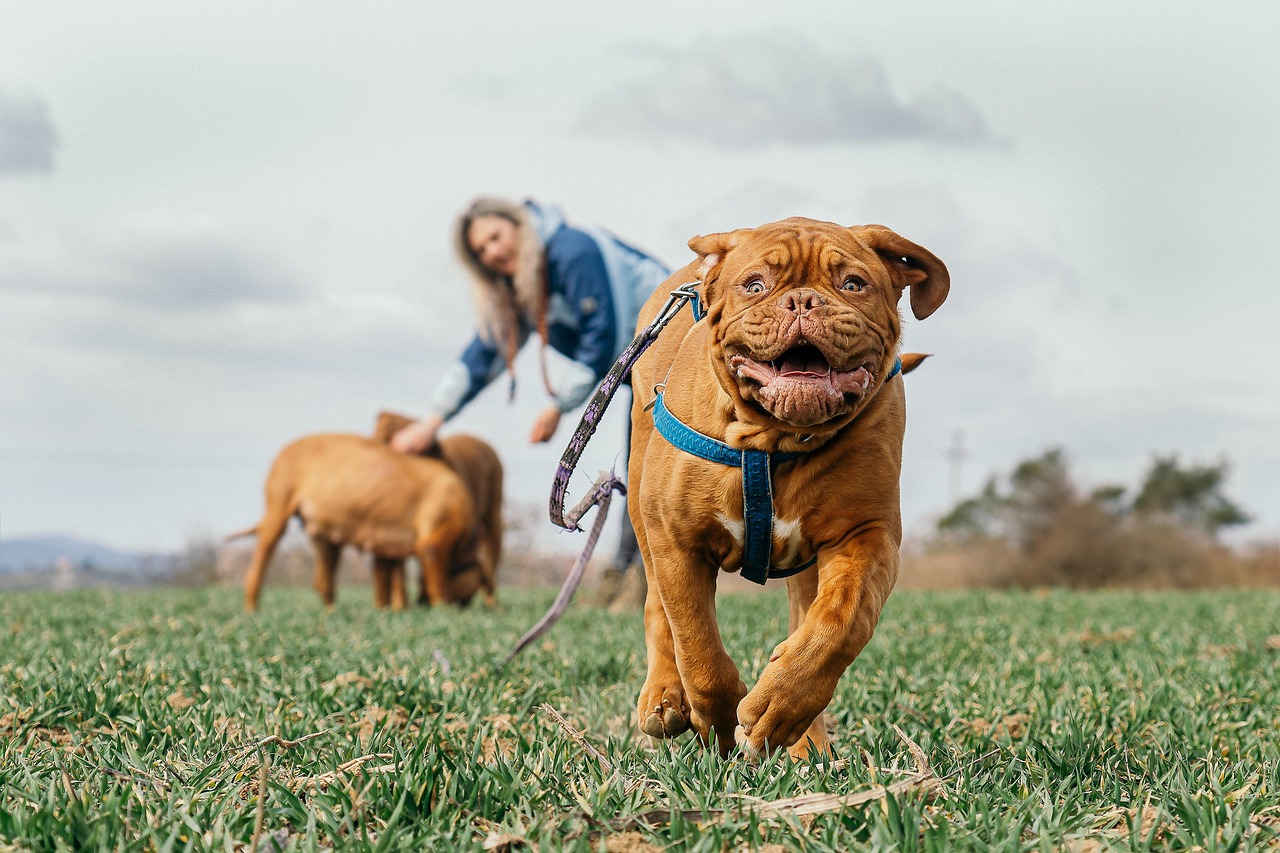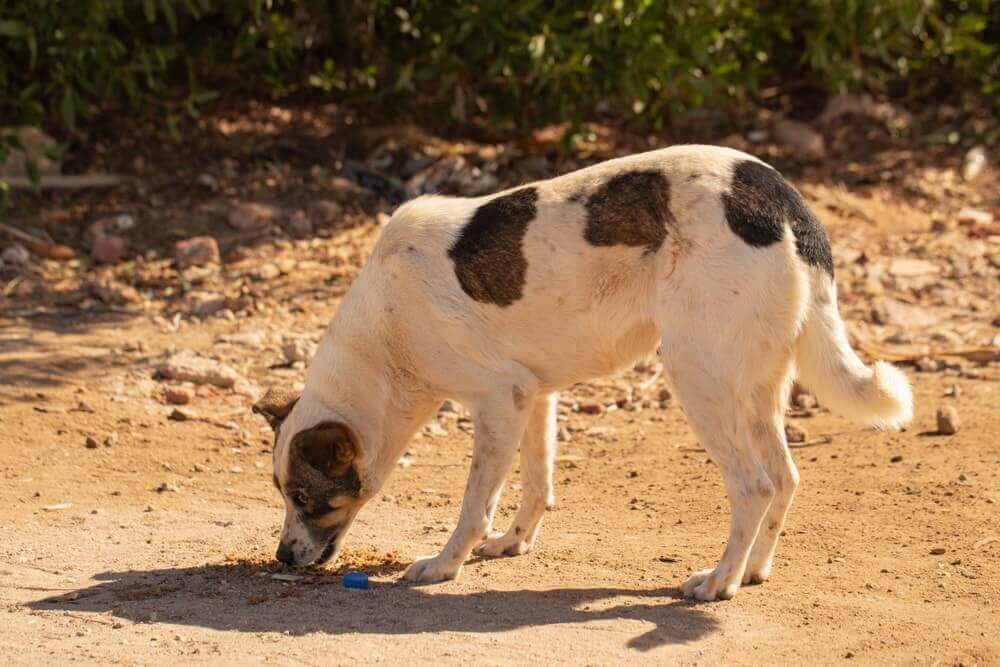Hey Ollie blog readers! We’re offering you an exclusive 60% OFF your starter box! Try now!
You’re watching TV when all of a sudden your pup hops off the couch and scoots her butt across the floor. Did she seriously just rub her stinky butt all over your new rug?! From butt dragging to other bizarre behaviors (see: humping your leg, chowing down on their own poop), it’s no secret that dogs do weird things.
The good news is, most of these behaviors that seem unusual or even gross to us are actually pretty benign, says Ernie Ward, DVM, CVFT, founder of DogGone Healthy, a nutritional and behavioral care practice in Calabash, NC. “They’re just part of being a dog," he explains. "It’s only when these behaviors become excessive that we need to worry.”
Read on to decode some of your dog’s strange pastimes and learn what you should do (if anything) about them.
Dragging their rear across the floor
There are several possible culprits to this behavior, depending on the age and sex of your pup. It could be something as simple as excessive fur around her behind or feces hanging onto the fur, says Ward—in which case a bath and haircut can solve the problem.
That being said, there might an underlying health issue, like hormonal imbalance or impacting of the anal glands. Or, your female pup may be going into heat—so you should always check with your vet if your dog is dragging her butt on a regular basis.
Going to town on your leg
Don’t worry: Humping another dog, your leg, or the air is not a sign that your pup is a perv. “This is a sexual behavior from our perspective—and that may be part of the issue when a dog humps, but it’s also a form of dominance,” says Ward. It’s your dog’s way of saying, “I’m the boss.” Your pup may also start humping when they get overly excited; your dog is likely just overwhelmed with emotion and doesn’t know how to manifest it. “Typically it’s completely innocent and not malicious or perverse,” says Ward.
That being said, it’s kind of uncomfortable to watch—or feel, if your pup is going at it on your leg. It’s okay to tell your dog to stop, but do it delicately, advises Ward: “When there’s a behavior we don’t desire, distract them with another behavior we do desire. Gently separate them from whatever they’re humping and turn their attention to a toy or a treat.”
Snacking on poop
While feasting on feces seems utterly repulsive to us, there might actually be a biological reason your dog does it. There are a few theories about the root cause for this behavior, says Ward. It may stem from the fact that dogs evolved from wolves. “We’ve observed wolves cleaning their dens and mothers eating feces to prevent their babies from eating it and potentially getting a parasite,” he explains. Or it could be that your dog eats poo as an instinct to ingest extra fat, in case he’s not getting enough in his diet. This is especially true when you see them nosing in the cat’s litter box; dog feces has a fair amount of fat in it, and feline feces might have even more. “Your dog could be ingesting poop for energy preservation—in the same way rabbits do,” says Ward.
Another simple reason? Your pup is just curious. “Dogs are scavengers and omnivorous,” explains Ward. “When they detect the aromas of fat and proteins in feces, they might just find that enticing.”
Making moves or noises while sleeping
Your dog is a dreamer. Just like humans, canines also go through three phases of z’s: light sleep, the REM cycle, and deep sleep. When you notice your pup twitching, kicking, or making noise as he snoozes, he’s probably in that middle phase. “Part of the REM cycle, the phase when you’re having dreams, has to do with the way brains store memories,” says Ward. So when your dog is whimpering or kicking while he’s snoozing, “chances are, they’re in REM and dreaming about chasing birds or playing in the park.”
The physical responses dogs have while dreaming are usually pretty adorable. But if the whimpering, shaking, or barking is bothering you, resist the temptation to wake up your pup. “I would not recommend anyone interrupt that sleep cycle, as there’s a chance they could inadvertently bite you,” says Ward. “If you wake them, they’ll be startled and disoriented. Instinct takes over, and they could snap.” The REM cycle typically lasts just a few minutes, he says, so wait until they’ve calmed down and nudge them awake during a lull.
Licking like it’s their job
Every dog licks—its paws, your face, the ground, random objects with enticing scents. But if the tongue action seems incessant, it could be cause for alarm. Your dog might have an allergic skin disease that’s causing an itching or burning sensation, and they might be trying to alleviate the discomfort by licking at it; in that case, your pup should see a vet, who might recommend meds.
Another possible cause: a behavioral issue. “Dogs that are anxious or frightened may lick their paws, a toy, or a blanket incessantly as a way to cope and relieve stress,” says Ward. Plus, repetitive motions like licking might release feel-good endorphins, so your dog could get used to the motion to help her relax. But it’s not a benign behavior: Constant licking of their own skin can lead to acral lick granulomas, which are hard, calloused sections of skin that are very difficult to treat, says Ward. So it’s important to consult your vet or an animal behaviorist to nix the licking before it causes a more serious issue.
Your dog might also be more prone to licking during allergy season, says Ward: “It’s a normal cleaning behavior, and they might be trying to clean off pollen or some seasonal substance that has an aroma or sensation we can’t detect but our dogs can.” To help nip this kind of licking in the bud, wipe your dog’s paws off when he comes inside during allergy season and bathe him every one to two weeks, suggests Ward.
Cocking their head to one side
Ever notice your pup turn his head when you ask if he wants a treat or is ready to go for a walk? It’s sort of like they’re asking you to repeat yourself to make sure they heard you right. “One of the big differences between cat and dog anatomy is that cats can rotate their ears almost completely around to pick up on sounds from various directions while dogs cannot,” says Ward. “So when a dog cocks its head, they’re turning toward a sound and opening up that ear canal so they can hear better.”
This cute, curious behavior also has a biological basis. Think of a wolf listening to detect prey to target for dinner: If it can’t figure out where the animal is coming from or going, it could miss out on mealtime.
Chasing their tail
At some point as a puppy, your dog will likely go after her tail in the same way a young baby first notices their hands or feet. “Most dogs outgrow it or do it only when they’re hyper-excited,” notes Ward. And when they do, it’s pretty dang funny.
It gets less funny and more worrisome if your dog chases her tail all the time until she’s wiped out. “Dogs can develop behaviors in which they feel compelled to do something over and over and over, almost like obsessive compulsive disorder,” says Ward. “I’ve seen dogs chase their tail and run in circles until they collapse.” If your dog seems way too preoccupied with her tail, talk to your vet. The OCD issue could be solved by something as simple as a little extra exercise.
Going crazy for grass
A lot of people assume that dogs graze on grass because their diet is lacking in some nutrient, like fiber, and that makes them crave it. But that’s a myth, says Ward. It’s likely just caused by curiosity, especially since many grasses smell and taste appealing. And nibbling on it occasionally is not dangerous, as long as you avoid areas that have been sprayed with pesticides or other potentially harmful chemicals.
Munching grass could also be a sign that your pup is feeling sick to her stomach and is trying to induce vomiting to rid herself of the feeling. “Because grass is a rough food source, swallowing whole blades can cause irritation to the esophagus and upper stomach and result in vomiting,” says Ward. That’s actually totally fine as long as it only happens every once in a while. “If it happens every time you go out for a walk, that’s a cry for help and could be a sign of an underlying problem,” says Ward. Consult your vet to rule out any ongoing issues with your pet’s GI tract.
The Ollie blog is devoted to helping pet parents lead healthier lives with their pups. If you want to learn more about our fresh, human-grade food, check out MyOllie.com.
Tagged As:

The nutrition your dog needs,
the food they want.

Enjoying our articles? Subscribe our Newsletters and get new articles directly to your inbox
You might also like
23 September 2025
6 MINS READ
Back to School: Training Your Dog at Any Age
As we hit back-to-school season rolls around, it’s not just kids who benefit from sharpening their skills and learning something new—our dogs can, too! Training isn’t limited to puppies or p…
by Ollie Pets
23 September 2025
7 MINS READ
Lace Up and Leash Up: A Beginner’s Guide to Running with Your Dog
Running is one of the simplest ways to stay active, and it’s even better with a canine companion. Not only does running with your dog keep you both in great shape, it also strengthens your bond …
by Ollie Pets
18 September 2025
8 MINS READ
Why Do Dogs Eat Rocks? Common Reasons & How To Stop It
Why do dogs eat rocks and is it dangerous? Learn what causes this behavior, what to watch for, and how to stop your dog or puppy from eating rocks safely.
by Gabby Slome







